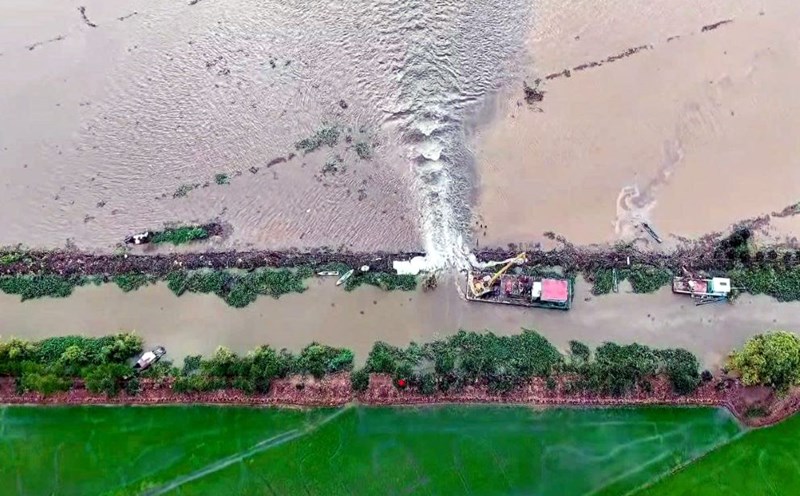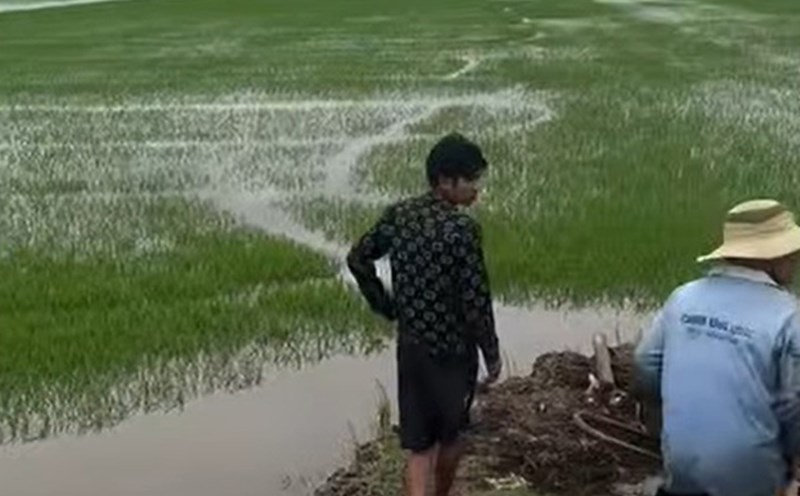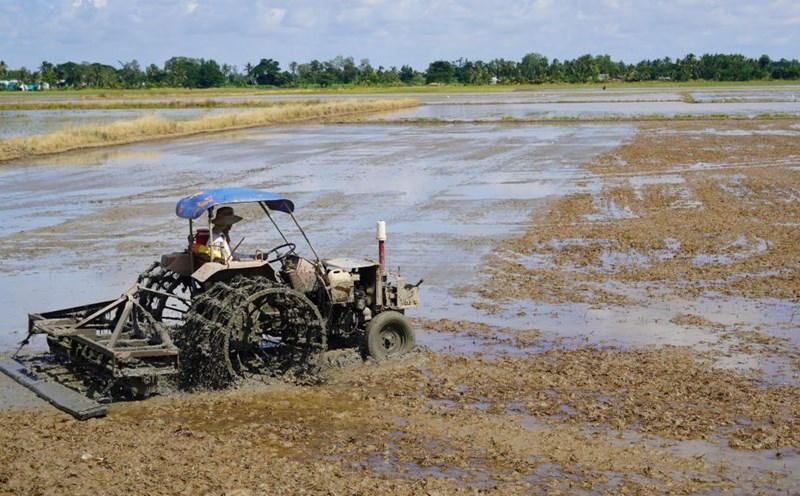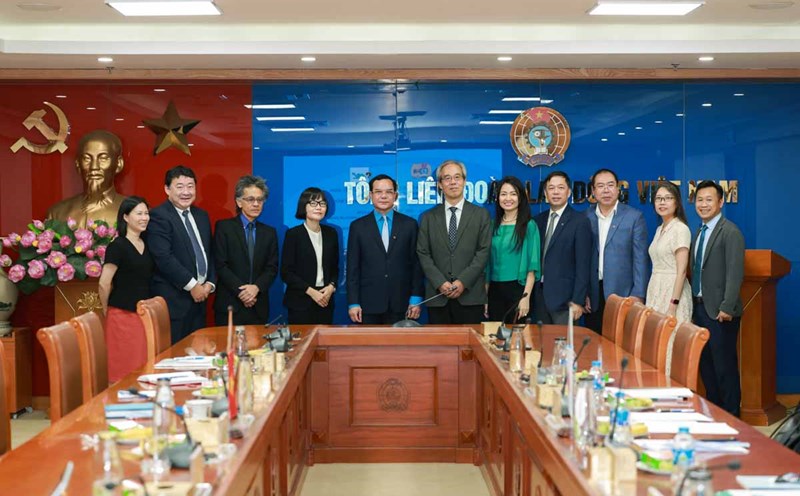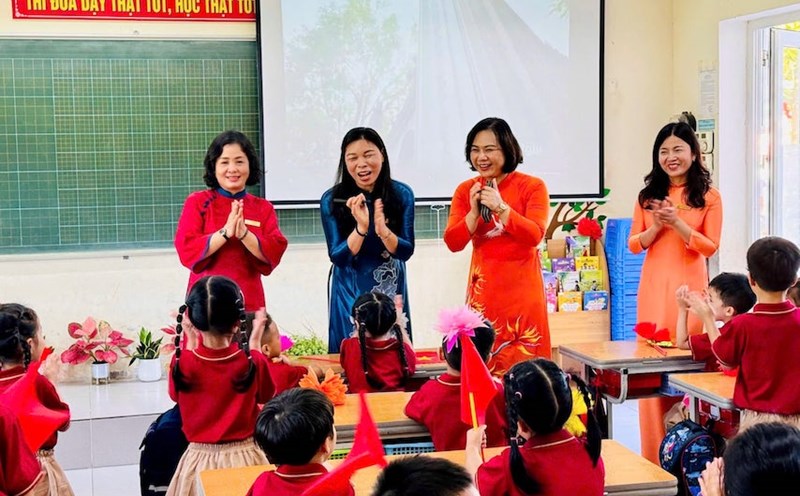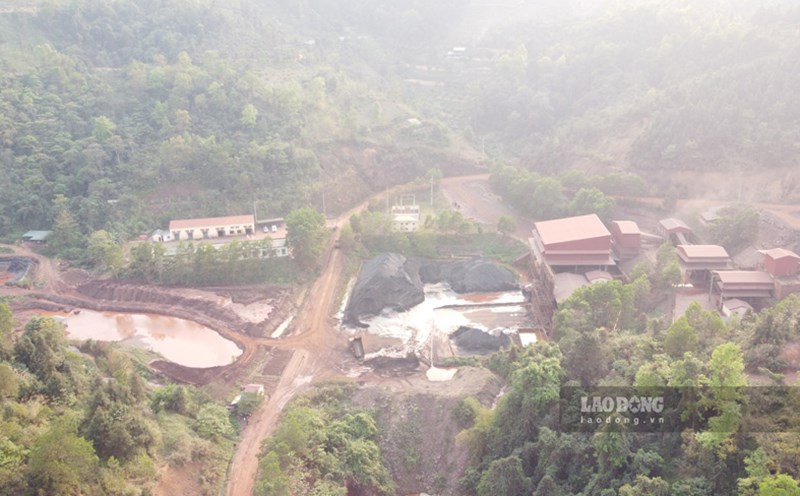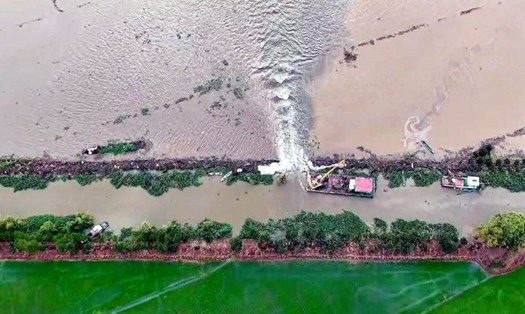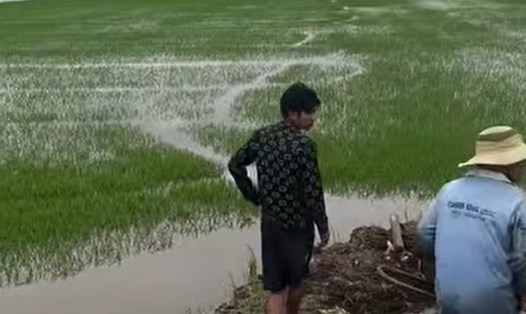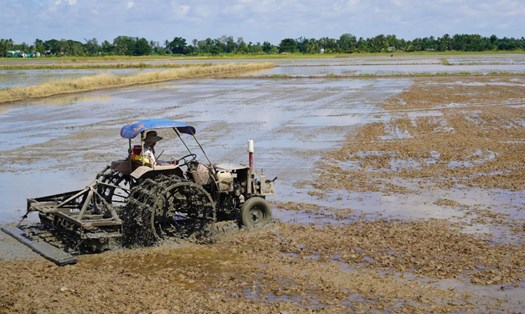In his opening speech, Mr. Vu Nang Dung - Chairman of the Vietnam Soil Science Association emphasized that soil is a valuable resource of the country, playing a decisive role in ensuring food security and sustainable development of the agricultural sector as well as other economic sectors.
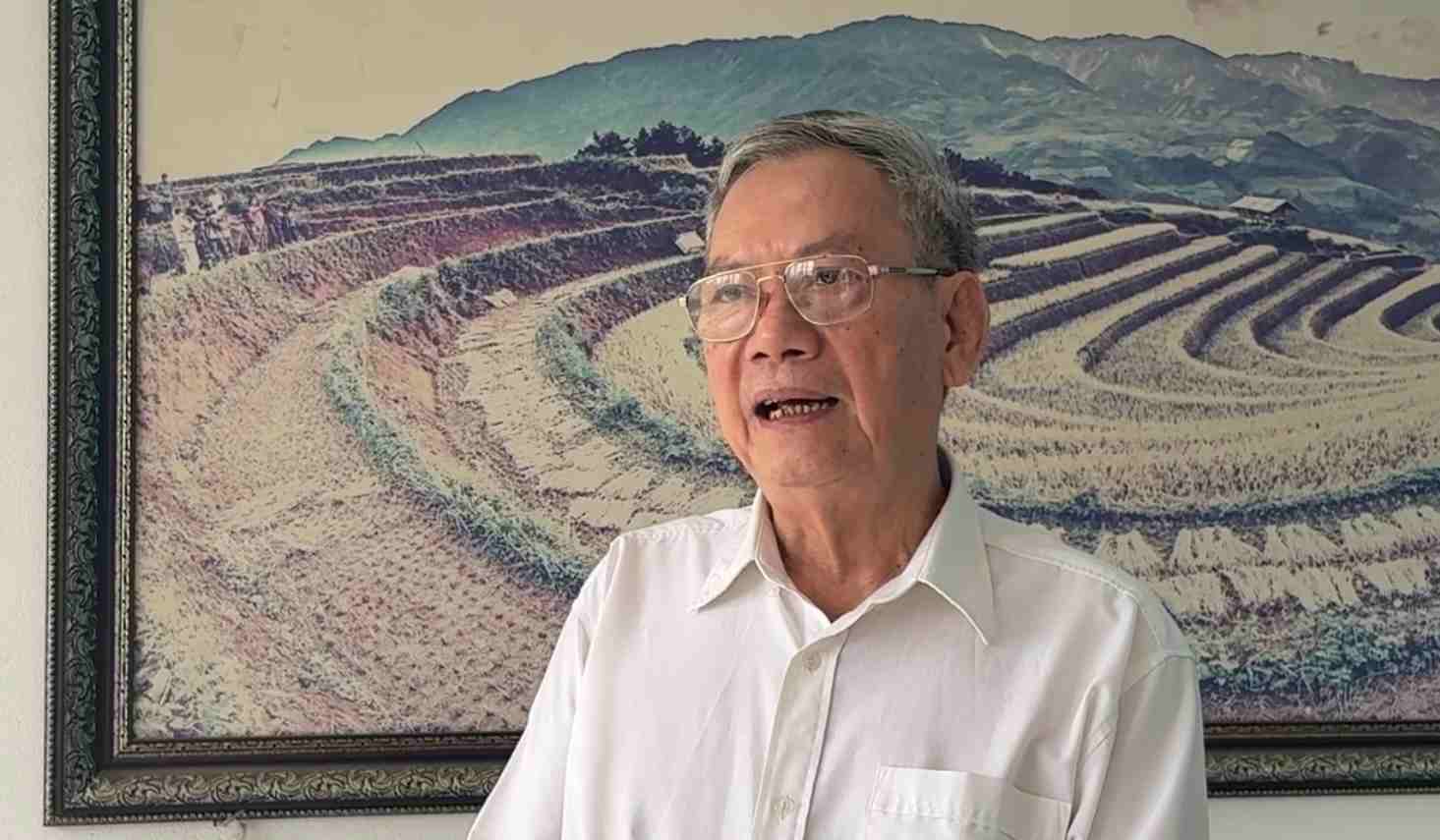
Since 1989, the rice cultivation area has decreased but rice productivity has continuously increased. From 17.93 quintals/crop in 1978 to 61.1 quintals/crop in 2023, an increase of 3-4 times, rice output reached 43.5 million tons, affirming the position of the Vietnamese rice industry in the international market.
However, in the context of climate change, high intensiveness and unreasonable use of agricultural materials, a part of rice fields is degraded, many areas are sour, poor in nutrients, and inflation has decreased, leading to unstable productivity. Therefore, maintaining and restoring soil health is becoming an urgent urgent requirement.
Restoring the decline in fertility of rice fields needs to be identified as a long-term strategy, positively affecting both the rational, chemical and microbiological properties of the soil, ensuring a foundation for sustainable development in the future - Mr. Dung affirmed.
According to the report of the Institute of Agricultural Rural Development, Vietnam currently has about 3.9 million hectares of rice-growing land, but half of the agricultural land area has degraded, mainly due to erosion, salinity, fertilization and reduced starch. In particular, the Mekong Delta is being strongly affected by climate change and changes in water resources from the upper Mekong River.
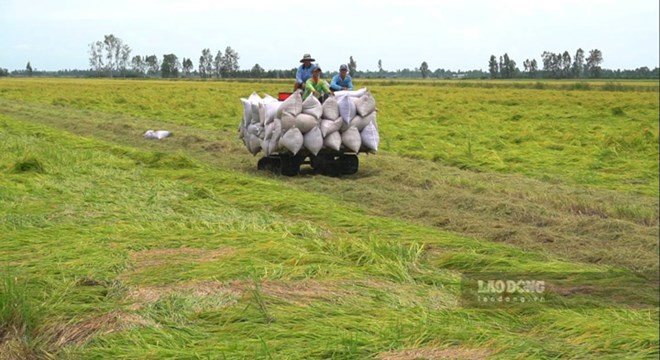
At the forum, Mr. Tran Minh Tien - Director of the Institute of Agricultural Rural Development said that the factors limiting current rice productivity are not only in seeds or fertilizers, but also come from reduced quality and soil nutrients.
From there, he proposed quality management through building data networks on health quality, rice soil quality developments, and developing a diagnostics system for soil characteristics in the fields and a "land doctor" system.
Sharing on the sidelines of the forum, Ms. Nguyen Thi Thu Huong - Deputy Director of the Department of Crop Production and Plant Protection said that although productivity has not decreased sharply, the land degradation is increasing production costs and long-term affecting food security. This is the time to change the mindset from land use to land cultivation and improvement, while laying the foundation for a low-emission agriculture, responsible for the environment and society.
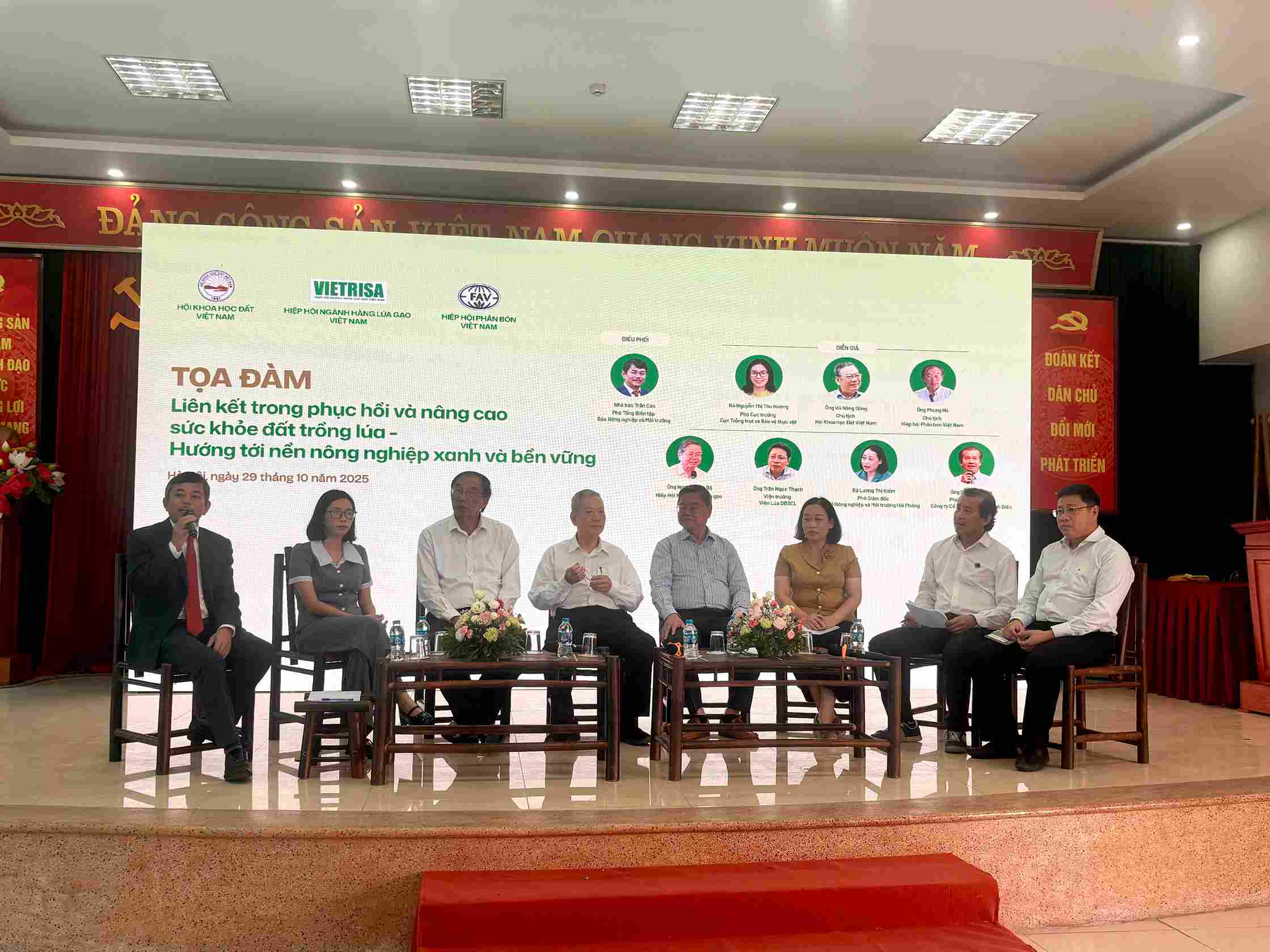
The Deputy Director also informed that the Ministry is developing communication programs and specialized training documents for each subject, helping farmers, agricultural extension officers and local managers better understand the concept of "land health".
When farmers understand the value of the land and proactively change in each small daily action, "slogans and campaigns will turn into specific actions, helping to maintain soil health sustainably", Ms. Huong said.

